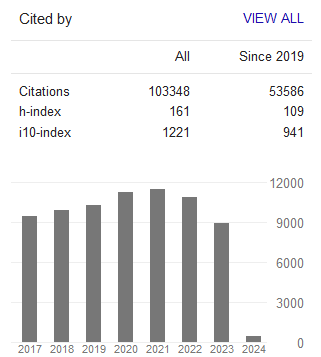Hayek’s Knowledge Problem and its Relevance in Organizational Management
- Matthew A. Blakey
Abstract
This paper discusses the enduring influence of Friedrich A. Hayek's contributions to economics and political philosophy, particularly in the context of modern decentralized management principles. Through his knowledge problem, Hayek can be seen as the ideological forefather of the modern management strategy of decentralization and can provide managers with practical insight into decentralized decision-making. The paper explores how Hayek's insights, specifically regarding the distributed nature of knowledge, intersect with the concept of decentralized management. By empowering employees, fostering collaboration, and leveraging local expertise, decentralized management addresses the limitations of traditional hierarchical structures. Comparing Hayek's "knowledge problem" with decentralized management as represented by the management scholar Peter Drucker, provides a theoretical foundation for agile and innovative organizational strategies. This paper concludes by offering practical insights for managers based on Hayek and Drucker’s work, such as encouraging bottom-up innovation and recognizing the limits of centralization for modern managers seeking to enhance adaptability and decision-making processes within their organizations.
- Full Text:
 PDF
PDF
- DOI:10.5539/ijbm.v19n2p180
Journal Metrics
Google-based Impact Factor (2023): 0.86
h-index(2023): 152
i10-index(2023): 1168

Index
- Academic Journals Database
- AIDEA list (Italian Academy of Business Administration)
- ANVUR (Italian National Agency for the Evaluation of Universities and Research Institutes)
- Berkeley Library
- CNKI Scholar
- COPAC
- EBSCOhost
- Electronic Journals Library
- Elektronische Zeitschriftenbibliothek (EZB)
- EuroPub Database
- Excellence in Research for Australia (ERA)
- Genamics JournalSeek
- GETIT@YALE (Yale University Library)
- IBZ Online
- JournalTOCs
- Library and Archives Canada
- LOCKSS
- MIAR
- National Library of Australia
- Norwegian Centre for Research Data (NSD)
- PKP Open Archives Harvester
- Publons
- Qualis/CAPES
- RePEc
- ROAD
- Scilit
- SHERPA/RoMEO
- Standard Periodical Directory
- Universe Digital Library
- UoS Library
- WorldCat
- ZBW-German National Library of Economics
Contact
- Stephen LeeEditorial Assistant
- ijbm@ccsenet.org
